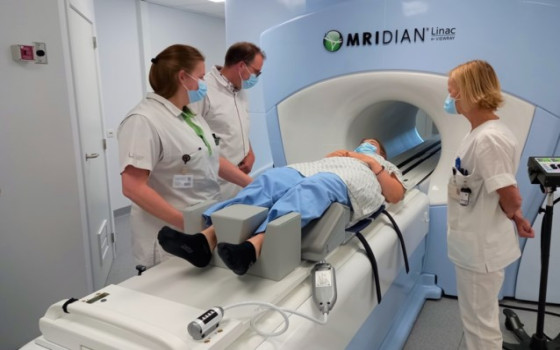
A unified immunotherapy could change the future of breast cancer patients. A promising drug duo could change the future of colon cancer treatment.

- Europe and Arabs
- Friday , 24 October 2025 10:35 AM GMT
California - Barcelona: Europe and the Arabs
Researchers at the University of California, Los Angeles, have developed an immunotherapy for triple-negative breast cancer, one of the most aggressive and difficult-to-treat types of cancer.
The new treatment, known as CAR-NKT cell therapy, relies on modified immune cells capable of attacking tumors from multiple directions and dismantling the defensive barriers used by cancer cells. According to what was published by the European news network in Brussels, "Euronews,"
Triple-negative breast cancer lacks three key targets that make conventional treatments less effective, limiting patients' treatment options. The new treatment uses CAR-NKT cells that can be mass-produced from donated blood and stored, making them ready for immediate use and at a much lower price of around $5,000 per dose, compared to the hundreds of thousands required for personalized treatments.
The treatment also relies on rare and powerful NKT cells, which are equipped with a chimeric antigen receptor (CAR) that targets the protein mesothelin, which is abundant on triple-negative breast cancer cells. These cells are able to attack cancer by targeting mesothelin, which is associated with aggressive and metastatic tumors, and exploiting natural killer receptors that recognize more than 20 molecular markers, making it difficult for cancer to escape. They also reshape the tumor's immune environment by eliminating immune-suppressing cells that act as tumor protectors.
Laboratory tests on tumor samples taken from patients with advanced stages showed that CAR-NKT cells were able to kill cancer in all samples, while also eliminating the immune-suppressing cells that tumors employ as protection.
"Patients have been waiting for better treatment options for a long time, and to be just one step away from starting clinical trials is exciting," said Professor Lily Yang, lead researcher of the study and professor of microbiology, immunology, and molecular genetics.
The potential for this treatment extends to other types of cancer, such as ovarian, pancreatic, and lung. Current immunotherapies, such as CAR-T cells, have achieved success against some blood cancers, but they face significant challenges with solid tumors such as breast cancer, which employ complex defense mechanisms and rapidly adapt to evade treatment. CAR-NKT represents a "comprehensive attack" on tumors, targeting them from multiple directions simultaneously.
Yang added, "We have taken 99 steps to reach this milestone, and we are still one step away from starting clinical trials and demonstrating the effectiveness of this promising treatment for patients."
A promising drug combination could change the future of colon cancer treatment
A recent study conducted by the University of Barcelona has revealed promising therapeutic potential combining the drugs palbociclib and telagenastat against colorectal cancer, the third most common cancer worldwide. The results indicate that this drug combination can improve the effectiveness of conventional clinical treatments and reduce cancer cells' resistance to treatment. The study, published in the scientific journal Oncogene, identified for the first time a critical metabolic mechanism that explains the resistance of colorectal cancer cells to palbociclib, a currently used treatment for advanced breast cancer.
The research was led by Professor Marta Cascante, Professor of Biochemistry and Molecular Biomedicine at the Faculty of Biology at the University of Barcelona, and a member of the Institute of Biomedicine at the University of Barcelona (IBUB) and the Spanish Research Network for Liver and Digestive Diseases (CIBEREHD), along with Dr. Timothy M. Thomson from the Institute of Molecular Biology of Barcelona (IBMB-CSIC) and CIBEREHD, and current Director of the Institute for Scientific Research and Advanced Technological Services in Panama (INDICASAT). Researchers from the University of Barcelona and the Francis Crick Institute in the United Kingdom, along with the CIBEREHD Bioinformatics Platform, participated in the study. Researchers Míriam Tarrado-Castellarnau and Carles Foguet were the lead authors of the paper.
A Complex Mechanism of Resistance and Ways to Overcome It
Palbociclib is used to treat advanced breast cancer that is estrogen receptor-positive (ER-positive) and human epidermal growth factor receptor 2 (HER2-negative).
The drug belongs to a class of inhibitors that target the cyclin-dependent kinases CDK4 and CDK6, two proteins that control cell division and growth.
Although recent clinical trials have expanded the drug's use to include other types of cancer, such as colorectal cancer, resistance to it remains a major therapeutic challenge.
Cascanti, a pioneer in metabolomics and targeted systemic medicine for personalized therapy, explains that her team had previously identified resistance mechanisms, including overexpression of the metabolic enzyme glutaminase. “We knew that cancer cells reprogram their metabolism to overcome the effects of kinase inhibitors, but we didn’t know if these mechanisms represented effective therapeutic targets to be combined with these drugs,” she adds.
How does the new drug combination work?
The study showed that treatment with palbociclib leads to metabolic reprogramming in colorectal cancer cells that survive treatment, enhancing glutamine metabolism and mitochondrial activity within the cell—mechanisms that enable the cells to continue growing despite treatment.
To address this, the team investigated the effect of combining palbociclib with telagenastat, a selective inhibitor of glutaminase, which is responsible for converting glutamine to glutamate.
The results showed that this dual therapy prevents the metabolic changes that enable cells to resist primary therapy.
“The combined therapy prevents cancer cells from entering a state of metabolic reprogramming that enables them to survive the initial treatment, opening new avenues for improving the effectiveness of current treatments,” said Cascante.
Promising results in animal and laboratory models
Researchers Miriam Tarrado-Castellarnau and Carles Foguet demonstrated that the two drugs produce complementary metabolic responses, making them ideal for counteracting the compensatory effects of each other.
The study stated: “The combination of Palbociclib and Telaglenast produces a strong synergistic effect that reduces cancer cell proliferation and prevents the emergence of drug resistance, both in vitro and in animal models.”
The team concluded the research by saying: "The results indicate that combining these two drugs may represent a promising approach to treating colorectal cancer and deserves further investigation in future clinical trials."


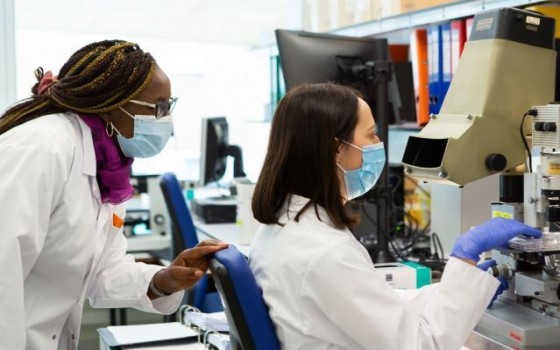
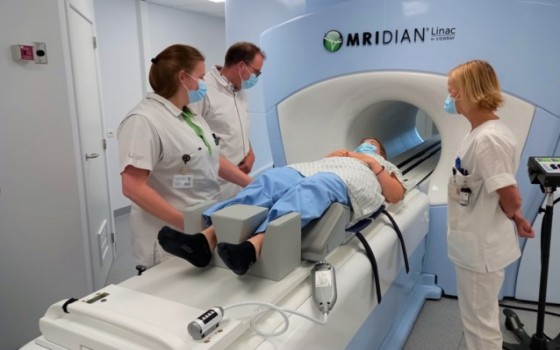


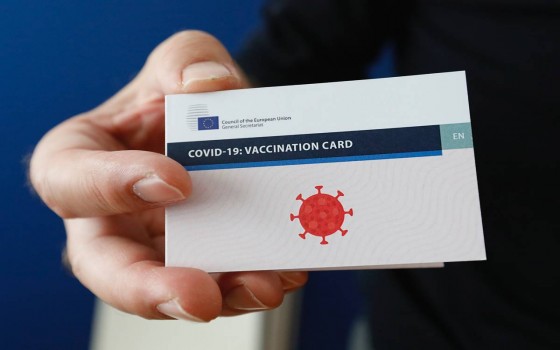


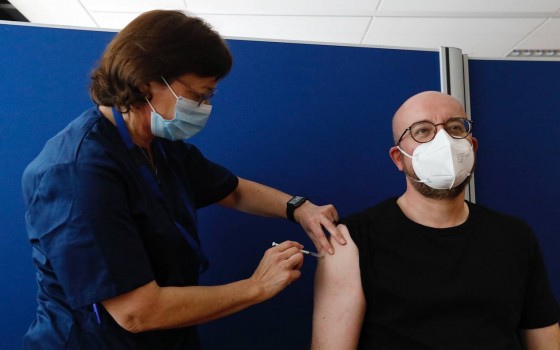


No Comments Found